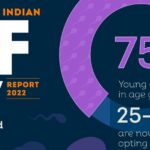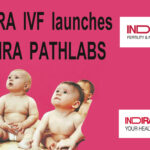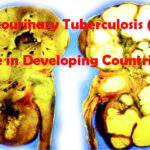Women undergoing IVF treatment during COVID pandemic or pregnant need to stay positive and there needs to be a balance maintained for emotional well-being.


Attributing to this, a majority of the couples who were planning to undergo IVF treatment have postponed their consultations while others have delayed their dates of embryo transfer until the pandemic situation comes back to normalcy. There have not been any guidelines issued regarding the restrictions on any type of ongoing fertility treatments, but is currently a voluntary choice in order to prevent exposure of the mother and foetus to infections, as multiple visits and special care is required.
The current ongoing COVID 19 pandemic has changed the way for everyone and gynaecologists are managing the antenatal care during pregnancy through online video consultations in order to limit the exposure to outside world, at the same time it is essential to follow the safety and preventive measures until delivery. Attributing to hormonal changes, pregnancy itself takes a toll on the woman’s mental health, causing stress anxiety, depression, anger, mood swings, and during this phase it is quite important to take care of health.
Women undergoing IVF treatment or pregnant need to stay positive and there needs to be a balance maintained for emotional well-being. While it is known that it is not at all safe to step outside even for basic and routine exercises, walking etc, pregnant women should take care of their health at home. There may be various other questions puzzling every one of those who have recently conceived, but taking care of the precautions will definitely benefit the complete course of pregnancy even after the pandemic is over.
IVF is an ART comprising of controlled ovarian hyper stimulation followed by retrieval of eggs from the ovaries, fertilization with sperms in laboratory and subsequent transfer of the so-formed embryos inside the uterus. The embryos are cultured in laboratory from 3-5 days. The treatment is now highly refined with the application of ICSI (Intra Cytoplasmic Sperm Injection), Blastocyst culture, Laser Assisted Hatching, TESE (testicular sperm extraction) to name a few.
IVF is useful not just in blocked fallopian tubes, but also in women with poor or diminished ovarian reserves, PCOS, POF, endometriosis, uterine fibroids, adenomyosis, abnormal semen parameters, in couples married for long with primary or secondary infertility, unexplained infertility and in couples with failure of non-ART cycles. Counseling plays a major role in such cases to prevent the blame game among the couples. Counseling the partners that the cause could center around from male, to female partner, to both, or to even none, and making them realize that understanding and supporting each other could bring about a great deal of strength in progressing with the treatment, helps.


Dr Rekha Brar- Gynaecologist and IVf Expert











